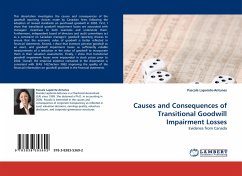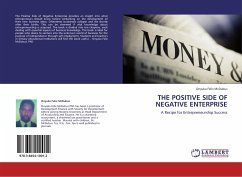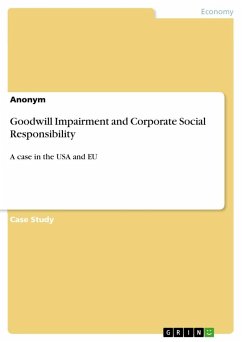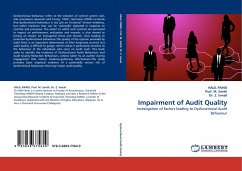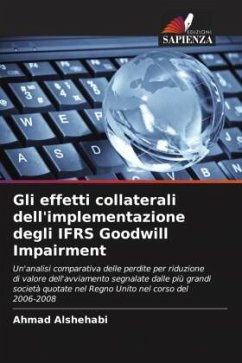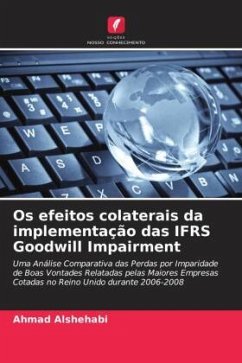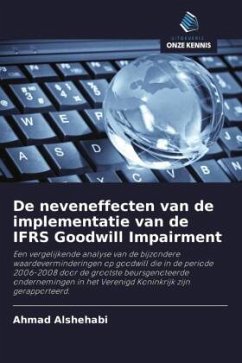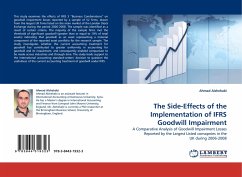
The Side-Effects of the Implementation of IFRS Goodwill Impairment
A Comparative Analysis of Goodwill Impairment Losses Reported by the Largest Listed comapnies in the UK during 2006-2008
Versandkostenfrei!
Versandfertig in 6-10 Tagen
32,99 €
inkl. MwSt.

PAYBACK Punkte
16 °P sammeln!
This study examines the effects of IFRS 3 Business Combinations on goodwill impairment losses reported by a sample of 52 firms, drawn from the largest UK firms listed on the main market of the London Stock Exchange during the period 2006-2008. The sample was identified as a result of certain criteria. The majority of the sample firms met the threshold of significant goodwill (greater than or equal to 10% of total assets) indicating that goodwill as an asset representing a material component of the reported asset portfolio for the research sample. The study investigates whether the current acco...
This study examines the effects of IFRS 3 Business Combinations on goodwill impairment losses reported by a sample of 52 firms, drawn from the largest UK firms listed on the main market of the London Stock Exchange during the period 2006-2008. The sample was identified as a result of certain criteria. The majority of the sample firms met the threshold of significant goodwill (greater than or equal to 10% of total assets) indicating that goodwill as an asset representing a material component of the reported asset portfolio for the research sample. The study investigates whether the current accounting treatment for goodwill has contributed to greater uniformity in accounting for goodwill and its impairment, and consequently enabled comparison to be made across industries and through time. The study lends support to the international accounting standard-setters' decision to question the usefulness of the current accounting treatment of goodwill under IFRS.



